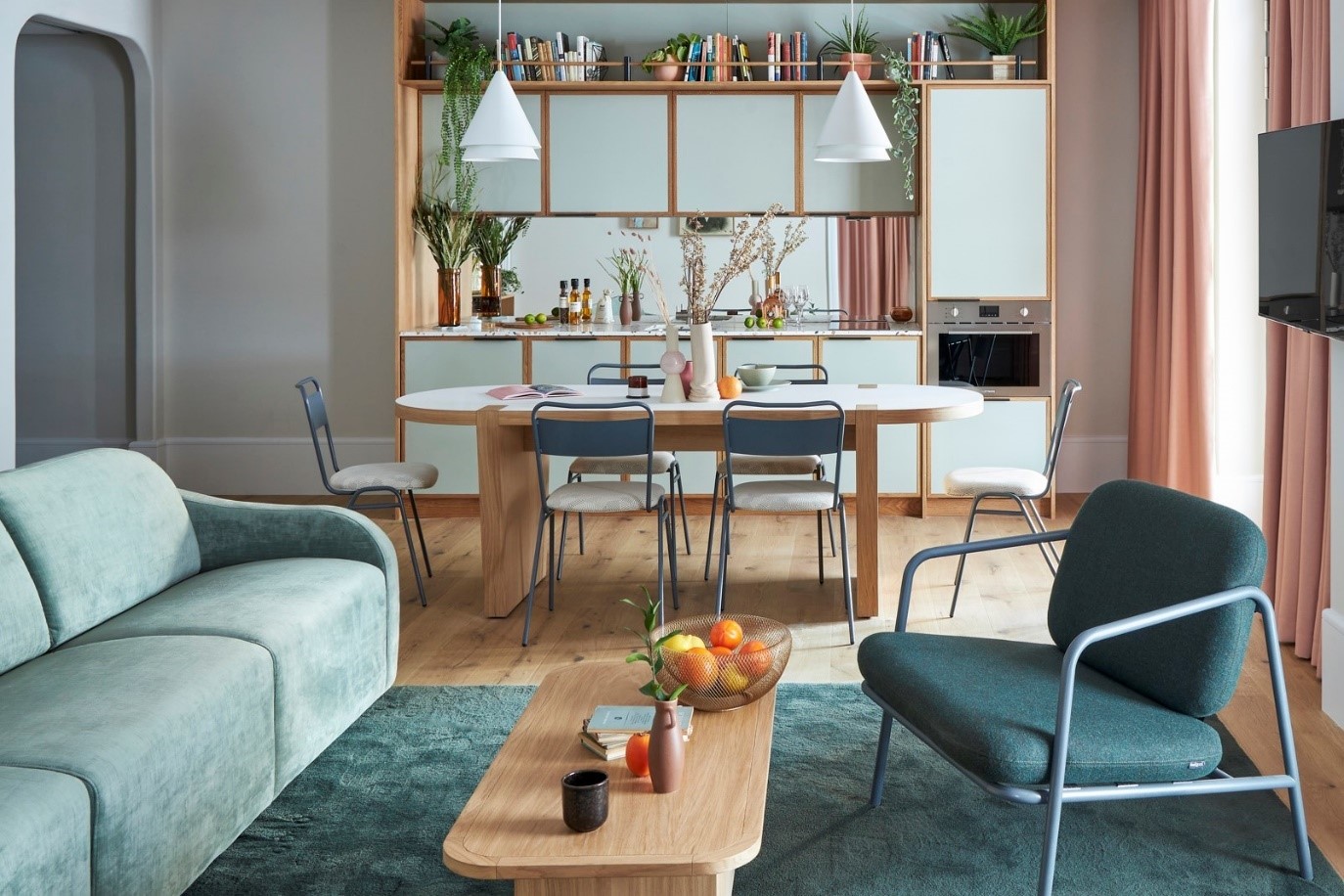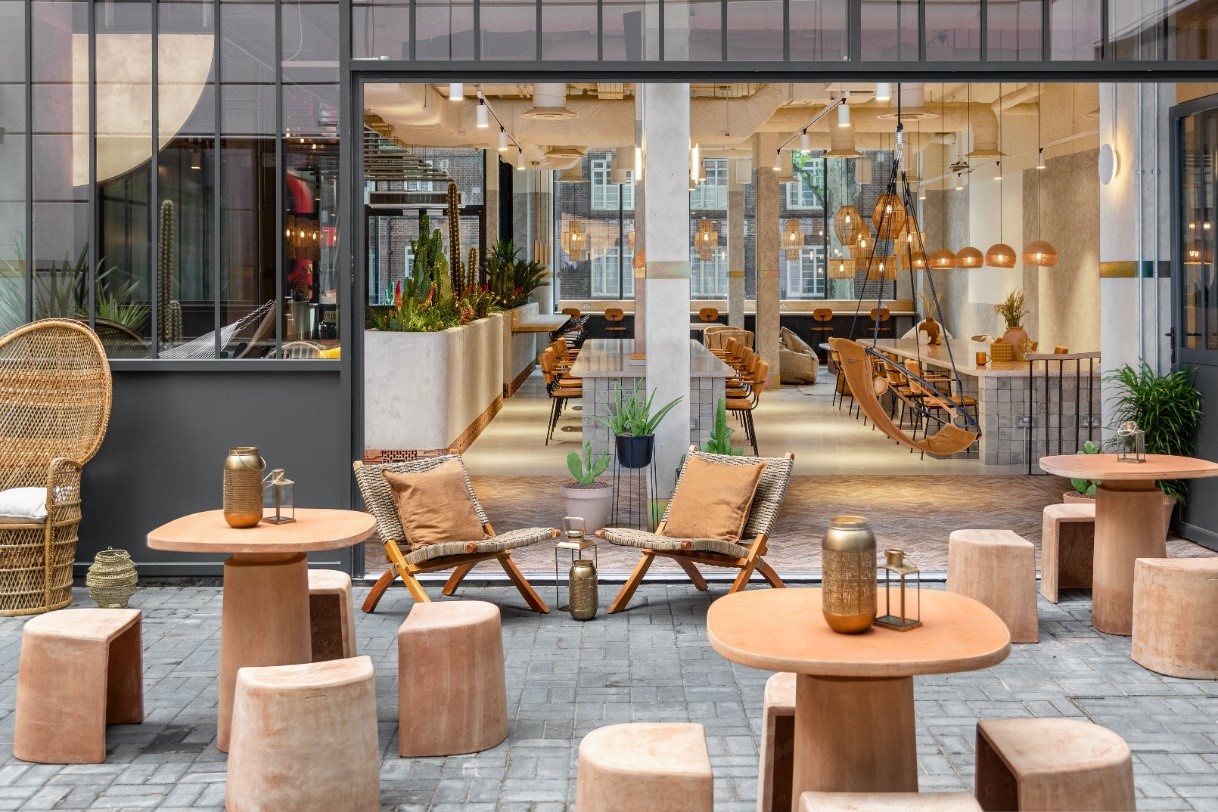What does the future hold for the UK Serviced Apartment / Apart-Hotel sector?
The first in a mini series of articles on the UK Serviced Apartment sector.
8 minutes to read
Whilst the pandemic proved the ultimate test of management, for experienced operators the crisis provided the opportunity for the serviced apartment sector to shine.
- Profitability of the serviced apartment sector outperforms the Regional UK hotel market;
- Serviced apartments achieve GOP margin of 43% for the 12-months to May 2022;
- Higher proportion of extended-stay business targeted as a means of maximising profit margins;
- Institutional appetite for serviced apartments at an all-time high.
The ability to trade throughout an extended period of high restrictions, has undeniably increased the product awareness of apartment-style living, with the security and comfort of a hotel product.
For so long misunderstood, the pandemic was the catalyst for a growing pool of investors to realise the sector’s long-term potential, providing not only product diversification, but the realisation of stronger returns, greater versatility and reduced volatility of the cashflow. The availability of capital seeking investment in the sector has never been more pronounced, with the aparthotel concept having proven its resilience and many operators now have an enviable track record.

Turing Locke Cambridge, opened September 2021
Profitability of Serviced Apartments outperforms regional UK hotel market
This reputation of strength, one of part admiration, part envy, has been earned by breaking-even month-on-month, since the onset of the pandemic. Throughout the extended lockdowns and the periods which followed, allowing leisure travel to resume, the branded aparthotel sector recorded a far superior level of profitability than the wider UK hotel market.
For the full year in both 2020 and 2021, the regional UK serviced apartment sector continued to operate at a significant profit, securing a GOP of £25.40 PAR for the year 2021, outperforming the wider regional UK hotel market by 40%.
As at the end of May 2022, according to HotStats data, in regional UK, the Serviced Apartment sector achieved the highest scoring RevPAR penetration versus the same month in 2019 - recording 9% growth in nominal terms, with RevPAR of £74.40, driven by a 5.0 percentage point gain in occupancy. In real terms, for the month of May, RevPAR of £66.50 fell 3% short of its performance in 2019.
On a rolling 12-month basis to the end of May 2022, the Serviced Apartment sector has continued to outpace the regional UK hotel market, with a GOPPAR uplift of 12%, to £32.30 PAR. For the five-month YTD period, with trading at the start of 2022 severely hampered by the Omicron variant, the differential in the serviced apartment sector’s outperformance has been even more acute, with the sector recording a 20% uplift in GOPPAR versus Regional UK. And finally, compared to GOPPAR performance for the same month in 2019, in regional UK, the serviced apartment sector is the only dataset to have improved its GOPPAR performance, with a 10% uplift in GOPPAR, compared to an average 11% decline in GOPPAR across the wider regional UK market.
Equally impressive, is the level of profitability achieved as a percentage of turnover, with very few businesses offering this level of profitability. GOP as a percentage of turnover averaged around 53% during the summer months of 2021; for the 12-month rolling period to May 2022, the sector achieved an average GOP margin of 43%, compared to 30% for the wider regional UK hotel market.

Bermonds Locke, Tower Bridge, Opened September 2020
Cost efficiencies protect profit margins
Technology and automation – provide tools for timely, strategic and forward-looking decision making
Whilst the pandemic accelerated the adoption of tech into the UK hotel sector, during this period of recovery the serviced apartment sector is continuing to drive revenue enhancement and efficiencies from these investments. Technology and automation have increased the capacity of staff throughout all departments, both front-of-house and back office, critically allowing for operational savings in payroll to be made.
On a per occupied room basis, Regional UK apart-hotels recorded a 2% decline in payroll costs for total operating departments in May 2022 versus May 2019, by contrast the regional UK hotel market recorded a 20% increase. Total payroll costs in May 2022, equated to 21.5% of total revenue, compared to 23% in May 2019. Despite an increase in the average wage cost, with the National Living Wage increasing by 14% since April 2019, this is proof that technology is helping to drive payroll efficiencies, with improved capacity, leading to lower staffing requirements.

With many operators choosing to make significant investment in their infrastructure during the pandemic, cloud-based, next-generation revenue management platforms are providing powerful and proactive analytics critical to adapting quickly to the changing, dynamic and challenging market landscape. Use of such technology provides access to automated scientific decision making, with the ability to forecast trends, focus on profit maximisation and the value of a guest, thereby facilitating profitable outcomes and driving efficiencies.
Optimising profitability
Despite significant discounts applied to the rates of longer length stays, often by as much as 20% discount for stays longer than seven nights, or significantly greater discounts for 28 nights +, the cost benefit of fewer arrivals and departures, changes in the frequency of housekeeping, reduced commissions payable and fewer human touch points required throughout the stay, have all contributed towards achieving higher profit margins from improved cost efficiencies.
"The balance of longer stays and more direct business is helping to keep margins in a good place, while we juggle the other operational cost pressures. The current surge in operational costs remains a big challenge, particularly with rising energy, payroll and recruitment costs. We are more focussed on margin protection than chasing ADR, where the benefit is lost by the higher cost short-stay markets, particularly at a time of rising inflation."
Robert Alley, Former COO - Roomzzz Aparthotels
"We have a centralised operating model with most support managed from within the central hub, and we outsource all ancillary services, including our F&B, housekeeping, gym to local partners, which also hedges against escalating operating costs"
Nick Barton, Chief Commercial Officer at edyn
During the ongoing recovery and beyond, operators have learned valuable lessons and are not rushing to pivot back to pre-pandemic ways. A greater proportion of the longer-stay 28 night+ business is here to stay for the foreseeable future. Cheaper to service than short-stay higher-yielding transient demand, the most important indicator will be on the protection of margins.
Achieving the right balance of higher-rated business versus long-stays will be critical for the apart-hotel sector particularly if, during this period of recovery, the fast-changing UK hotel market can support strong ADR growth alongside robust occupancy levels. Investment in technology and automation to provide the strategic decision making is likely to play a significant role in this regard. By adopting demand-based dynamic pricing principles, targeting those market segments most profitable and capitalising on the ebb and flow of what customers are willing to pay, will most likely stand the sector in a strong position to optimise profitability.
Institutional investment appetite at all-time high
Institutional appetite in the sector has gained considerable momentum, with the sector having proven its resilience during the global crisis. An increase in leased investment opportunities is further fuelling activity, where the institutional investor is keen to partner with financially strong tenants, with an established and trusted brand. Investing at the development stage is also proving popular, particularly where the aparthotel forms part of a much larger mixed-use scheme. Union Investment’s €60 million acquisition of Wilde by Staycity Aldgate East is one such example, with Staycity signing a 30-year lease.
With the growth of Serviced Apartments throughout Europe, we anticipate more European brands and operators infiltrating the UK market. The recent partnership announced between LaSalle and Numa Group launching a £500 million pan European urban hotel portfolio strategy, as well as institutional investors APG and Aware City’s equity stake in the Dutch operator City ID, will see fully integrated owner-operators targeting the UK to achieve their growth plans. Gaining meaningful exposure will be a challenge, due to the relatively small size of properties, but direct investment into new or embryonic operators will continue to prove attractive.
Specialist hospitality owner-operators are also likely to increase their exposure in the sector; the recent £40.5 million acquisition of Adagio Aparthotel Edinburgh by Pandox is expected to be followed up with other attractive and strategically located aparthotel assets. Meanwhile, Ascot’s goal to aggressively rollout its lyf accommodation concept, designed for the new generation of digital nomads and freelancers seeking flexibility and sharing, will involve expansion from Asia to Europe, with London and other UK gateway cities likely to be targeted hotspots.
Positive outlook ahead
Despite the economic uncertainties that the UK hotel sector faces, the outlook for the serviced apartment sector remains one of continued optimism and growth. The difficulties endured throughout the pandemic, provide the confidence and the belief that the sector is well placed to not just withstand, but successfully overcome further challenges, with its robust and flexible business model and the general flight to quality.
Continuing to adapt to the changing business environment will be key for the sector, particularly as the recovery period continues to evolve at a relatively fast pace. Economies made from long-term residential stays must keep pace with the gains made from the high-yielding, short-stay transient business. Yet during this period of potentially greater economic and political uncertainty, the ability to secure a core amount of extended-stay business will certainly help reduce the demands on staffing and keep profit margins in a healthy place. Investors are expected to remain keenly interested by the resilience and upside of the sector, with its risk profile proving to be attractive and the right sort of real estate in which to invest.